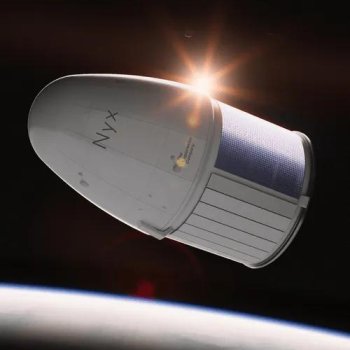French startup The Exploration Company now building an in-orbit servicing spacecraft
The French startup The Exploration Company, which has been developing an unmanned cargo spacecraft called Nyx to supply the commercial space stations under development, has now also gotten funds from the European Space Agency (ESA) to build an in-orbit spacecraft designed to provide refueling and servicing capabilities as well.
More information here.
In a 25 November update on its progress with an ESA-funded project, the company revealed that it is also working on a spacecraft called Oura, designed to refuel satellites in orbit, thereby extending their operational lifespan.
…As part of the 25 November update, the company announced that it had been awarded a Phase B2 contract for the InSPoC-1 programme. The Phase B2 development of the project will include activities up to Technology Readiness Level 6, which represents the development of a prototype and its demonstration in a relevant environment.
Once again, this contract from ESA is radically different than its past policy of building and owning everything itself. Instead, it is hiring this French company to develop this capability, which this French company will then own and be able to sell for profits to others.
The French startup The Exploration Company, which has been developing an unmanned cargo spacecraft called Nyx to supply the commercial space stations under development, has now also gotten funds from the European Space Agency (ESA) to build an in-orbit spacecraft designed to provide refueling and servicing capabilities as well.
More information here.
In a 25 November update on its progress with an ESA-funded project, the company revealed that it is also working on a spacecraft called Oura, designed to refuel satellites in orbit, thereby extending their operational lifespan.
…As part of the 25 November update, the company announced that it had been awarded a Phase B2 contract for the InSPoC-1 programme. The Phase B2 development of the project will include activities up to Technology Readiness Level 6, which represents the development of a prototype and its demonstration in a relevant environment.
Once again, this contract from ESA is radically different than its past policy of building and owning everything itself. Instead, it is hiring this French company to develop this capability, which this French company will then own and be able to sell for profits to others.

